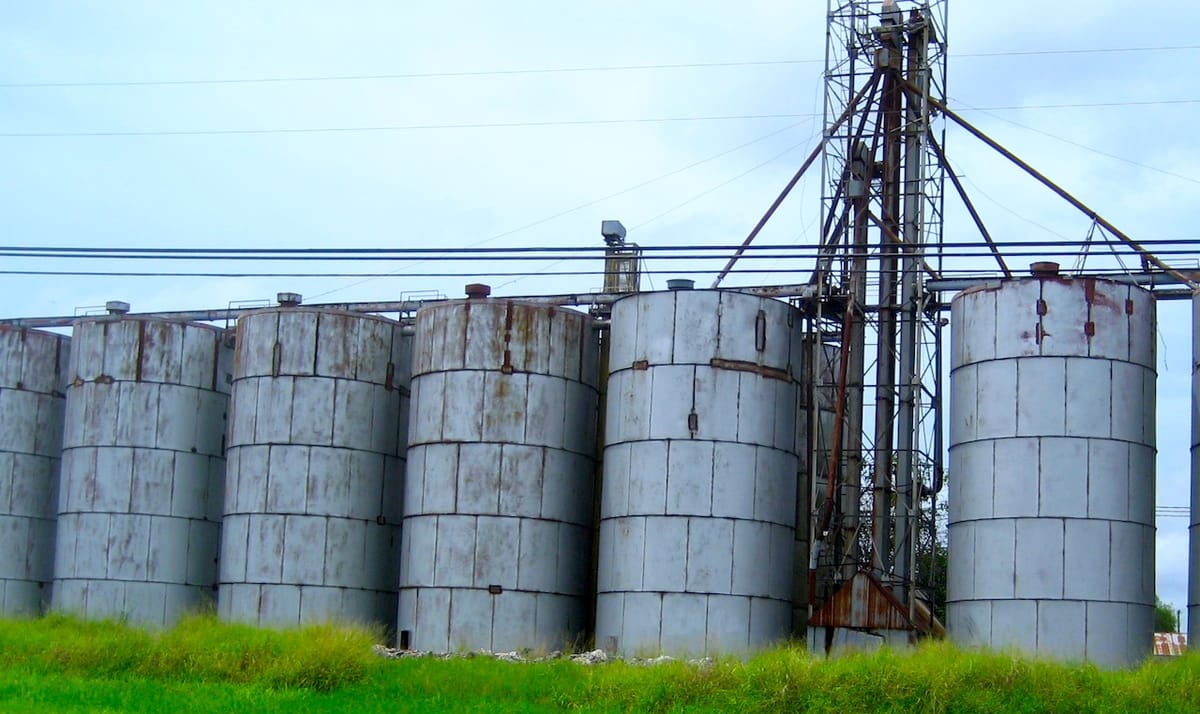in defense of the silo
should we stick to the silos and the grain that we’re used to?

Nobody seems to hate farms more than office workers. That's the sense I get from how many people have mean things to say about silos. These simple repositories work great to hold grain in a tower. Within a workplace, the legend goes, they stifle progress and keep teams away from each other. What if they're not that bad?
what is a silo?
A silo in an office setting is usually a metaphor for having excess control or power. Silos hoard information, staff, or resources within a team or department. We invoke the term when one team keeps another team in the dark. A silo is to blame when communication issues arise or a work process slows down.
When people vow to break down silos, they run the risk of creating more of them. People have so many ideas for what would disrupt the silos between us. One team may ask another to create a weekly newsletter about their work. Or a department lead could add more people to the cc line on emails. A leader may schedule a new regular meeting between teams that should "talk more." Or ask that staff from another department sit in on another team's meetings. Any of these things might help, sure. These approaches, when offered without purpose or plan, might not fix the silos at all. Instead, they could mean more emails and more work for people. At worst, we spend more time giving the same updates in different meetings.
the silo is a friend
Silos aren't a bad thing by default. Farm silos, the grain-holding kind, are great. No farmer worth their corn goes around the farm babbling about "tearing down silos" after lunch. Silos hold more than any of us could hold in our heads, our hands, or even our wheelbarrows. People sometimes treat them like a disease that needs a cure. I think they arise on their own as a natural feature of the workplace.
Silos don't only exist in huge multi-national businesses. They can show up in companies with a few employees but many moving pieces. There's lots of information flying around most places. We can't all know, or hold, everything. Take the request to be cc'd on every email about a topic. What percentage of those emails will a person need to act on? How many meetings should we be in every day? It's much more likely to add to a feeling of overwhelm. It may even make us numb to the real issues we need to solve.
Silos create specialists within an organization. They create subject matter experts on a process or work area we may not know much about. Silos can cut down on big, unwieldy discussions that span an entire organization. They can limit meetings to the people who need to be there while leaving out the ones who need to feel important.
working with and within silos
Silos can be a tool for managing information and resources. Instead of trying to destroy a valuable tool, we should try to understand its worth. Start with the idea that it may be impossible to knock down the silos in our workplaces. It could even be harmful! Here's how we can use them to our advantage.
Find the source of the siloing. When people complain about silos, they may have a very specific example. Maybe orders are going out before inventory can sign off on them. Test a solution before proposing it. Set goals, expectations, and a timeline for improvement. If that doesn't help, stop doing it and try something else.
Silos are more porous than we assume. The idea of silos implies that nothing ever passes between teams or departments. But information sharing happens all the time. Who hasn't gotten a heads-up about a new policy, a shuffled org chart, or juicy gossip, from a friend on another team? Learn about the ways that teams are successful in communication or resource sharing. Use those pathways as a model for sharing what else we need to share.
Start at the top. Silos form in workplaces with cultures of secrecy and information-as-power hoarding. Leaders may instill a sense of panic or scarcity among their teams. These things can contribute to suspicion or mistrust among colleagues. Identify those issues and their source. Are teams afraid to spend less than their budget because they fear losing that money forever? Did two teams stop talking because their bosses refuse to be in a room together? If a silo is what's holding you back, look to the decision-makers. Look to who has the power to speed up or delay progress.
Invest in a culture of collaboration. Haven't we all had enough of toxic and cutthroat workplaces? Decentralized or distributed decision-making involves people in decisions that may affect them. Empower people to solve their problems with each others as equals. Fund mediation training before conflicts arise. People are trying to break silos when what they should do is break cycles.
don't piss off Old MacDonald
Silos can mask inefficiency or poor communication. They're also a scapegoat for when something doesn't go well. We can't complain about bureaucracy or power-hoarding without doing anything about it. When people say they want to "break down silos" they're almost never talking about systems change. No silo-busting leader plans to merge every department and move the office to a flat blob-like structure.
Removing silos for real could mean flooding teams with too much information. It could lead to more fighting over territory or add chaos to sharing assets. We all want to get the grain out of our silos. Before you knock them down, try the door first.



